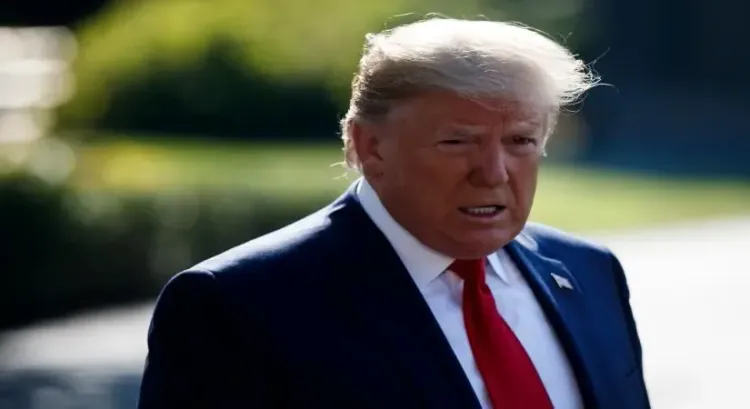Will Trump’s Appeal to the US Supreme Court Change the Tariff Landscape?

Synopsis
Key Takeaways
- Trump's appeal to the Supreme Court could reshape US tariff policy.
- The lower court ruling challenges the scope of presidential authority.
- US businesses have incurred substantial costs due to the tariffs.
- The case highlights the balance of power between Congress and the presidency.
- A ruling could lead to significant economic implications if tariffs are unwound.
New York, Sep 5 (NationPress) US President Donald Trump has petitioned the US Supreme Court to promptly reverse a lower court's ruling that deemed many of his extensive tariffs unlawful.
This request follows the US Court of Appeals for the Federal Circuit decision on Friday, which, in a 7-4 vote, determined that Trump exceeded his authority by imposing tariffs on nearly all trade partners under an emergency economic powers act. The court stated that such actions do not align with the president's constitutional powers and that imposing tariffs is inherently a Congressional power.
Earlier in May, the Court of International Trade based in New York declared these tariffs illegal, according to a report from Xinhua.
Documents submitted by the Trump administration warn that delaying a ruling until June 2026 could lead to a situation where $750 billion to $1 trillion in tariffs have already been collected, and rolling them back could lead to significant turmoil.
Solicitor General John Sauer emphasized the critical nature of the case in a filing on Wednesday evening.
As of August 24, US businesses have incurred over $210 billion in costs due to tariffs identified as illegal by the courts. If the Supreme Court supports the lower court's ruling, the US Treasury might need to refund the tariff revenues collected, local news outlets report.
Trump invoked the International Emergency Economic Powers Act to impose high tariffs on trade partners, declaring a national emergency in April. He argued that a trade imbalance adversely affected domestic manufacturing and posed a threat to national security.
Despite this, the appeals court has suspended its ruling until October 14, allowing Trump time to appeal to the Supreme Court.










